Oman is a country with a rich and diverse cultural heritage that has been shaped by its unique history and geography. The Omani culture is a blend of Bedouin traditions and Islamic influences, which have been passed down through generations. It is a culture that is deeply rooted in hospitality, respect, and tradition.
Islam plays a significant role in Omani culture, with many of the country’s customs and traditions being influenced by the religion. The majority of Omanis are Muslims, and the country has a long history of religious tolerance and coexistence. The Islamic faith is deeply ingrained in the daily lives of Omanis, and visitors to the country will notice the influence of Islam in everything from the architecture to the dress and customs of the people.
Bedouin traditions are also an integral part of Omani culture, particularly in the rural areas of the country. The Bedouin way of life is characterized by a nomadic lifestyle, with a strong emphasis on hospitality and community. Omanis are known for their warm and welcoming nature, and visitors to the country will often be invited to share a cup of coffee and a meal with locals. Overall, Omani culture is a fascinating and complex blend of tradition, religion, and history that is well worth exploring.
Overview of Omani Cultural Values and Beliefs
Omani culture is deeply rooted in its traditions and beliefs. The following section provides an overview of the cultural values and beliefs that are important to Omanis.
Hospitality
Hospitality is an essential element of Omani culture. Omanis are known for their warm and welcoming nature towards guests. It is customary for Omanis to offer dates and coffee to visitors as a sign of hospitality. They also take pride in offering their guests the best food and accommodation they can afford.
Respect for Elders
In Omani culture, respect for elders is highly valued. Elders are considered to be the pillars of the family and the community. Omanis show great respect towards their elders and seek their advice in matters of importance. It is also customary for younger people to greet their elders with a kiss on the forehead as a sign of respect.
Family Ties
Family ties are of utmost importance in Omani culture. The family is considered to be the foundation of society, and Omanis take great pride in their family heritage. Family members are expected to support and care for each other, and it is common for extended families to live together in the same household.
Muslim
Islam is the predominant religion in Oman, and it plays a significant role in shaping Omani culture. Omanis follow the teachings of Islam, which emphasizes the importance of compassion, honesty, and respect for others. Omanis are known for their religious tolerance and respect for other faiths.
In conclusion, Omani culture is deeply rooted in its traditions and beliefs. Hospitality, respect for elders, family ties, and Islam are some of the core values that shape Omani culture. These values are reflected in the daily lives of Omanis and are an essential part of their identity.
Omani Dress and Etiquette
Oman is a country with a rich cultural heritage, and this is reflected in the way its people dress and behave. Omani dress is an important aspect of the country’s culture, and it is often seen as a symbol of national identity.
The traditional Omani dress for men is the dishdasha, a long, loose-fitting garment that is usually made from cotton and other fabrics . The dishdasha is typically white, although it can also be found in other colors. The headgear worn by Omani men is the kuma, which is a cap made of multi-colored yarns. The kuma is often embroidered with intricate designs.
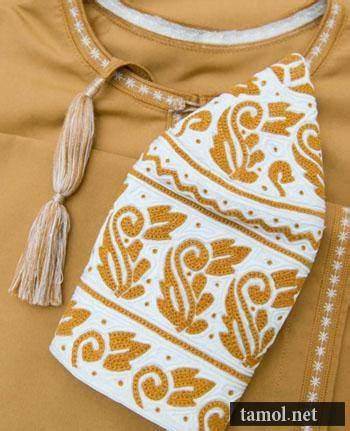
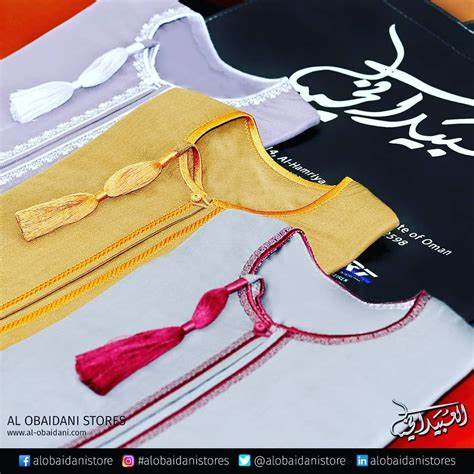
Women’s traditional dress in Oman is also an important part of the country’s culture. The national dress for women is a long, flowing garment called the abaya, which is usually black in color. The abaya is worn over other clothing and is often decorated with embroidery.
In Omani culture, it is important to dress modestly, and both men and women are expected to cover their arms and legs. This is especially true when visiting mosques or other religious sites.
In addition to dress, there are also certain etiquette rules that should be observed when in Oman. For example, it is important to greet people with a polite “Salam alaikum” (peace be upon you) and respond with “Wa alaikum as-salam” (and peace be upon you) when greeted in return. It is also considered impolite to use the left hand for eating or shaking hands.
Overall, Omani culture places a strong emphasis on respect for others and traditional values. By observing the dress and etiquette customs, visitors can show their respect for the country’s culture and traditions.
Traditional Omani Celebrations and Festivals
Oman is a country that cherishes its culture and traditions. The country has a rich heritage that is reflected in its various celebrations and festivals. These events provide an opportunity for Omanis to come together, celebrate, and showcase their cultural identity.
Eid Al Fitr
Eid Al Fitr is one of the most important festivals in Oman. It marks the end of Ramadan, the month of fasting. Celebrated with great enthusiasm and is a time for family gatherings, feasting, and gift-giving. Traditional Omani dishes such as rice, vegetables, chicken, lamb, and curry are prepared for the occasion. Omani halwa, a sweet dessert made from sugar, saffron, and rosewater, is also a popular treat during Eid Al Fitr.
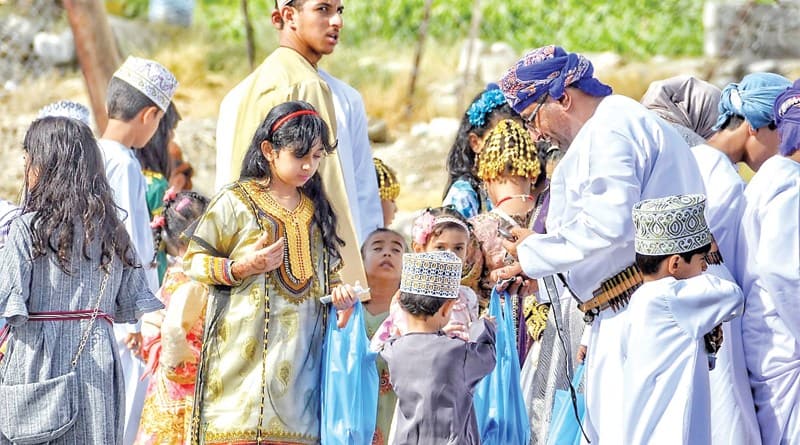
National Day
Oman’s National Day is celebrated on November 18th every year. It is a day when Omanis celebrate their country’s independence and the birthday of Sultan Qaboos bin Said Al Said. The day is marked with parades, fireworks, and cultural events. Traditional Omani cuisine is also an important part of the celebrations, with dishes such as fish, rice, and spices being served.
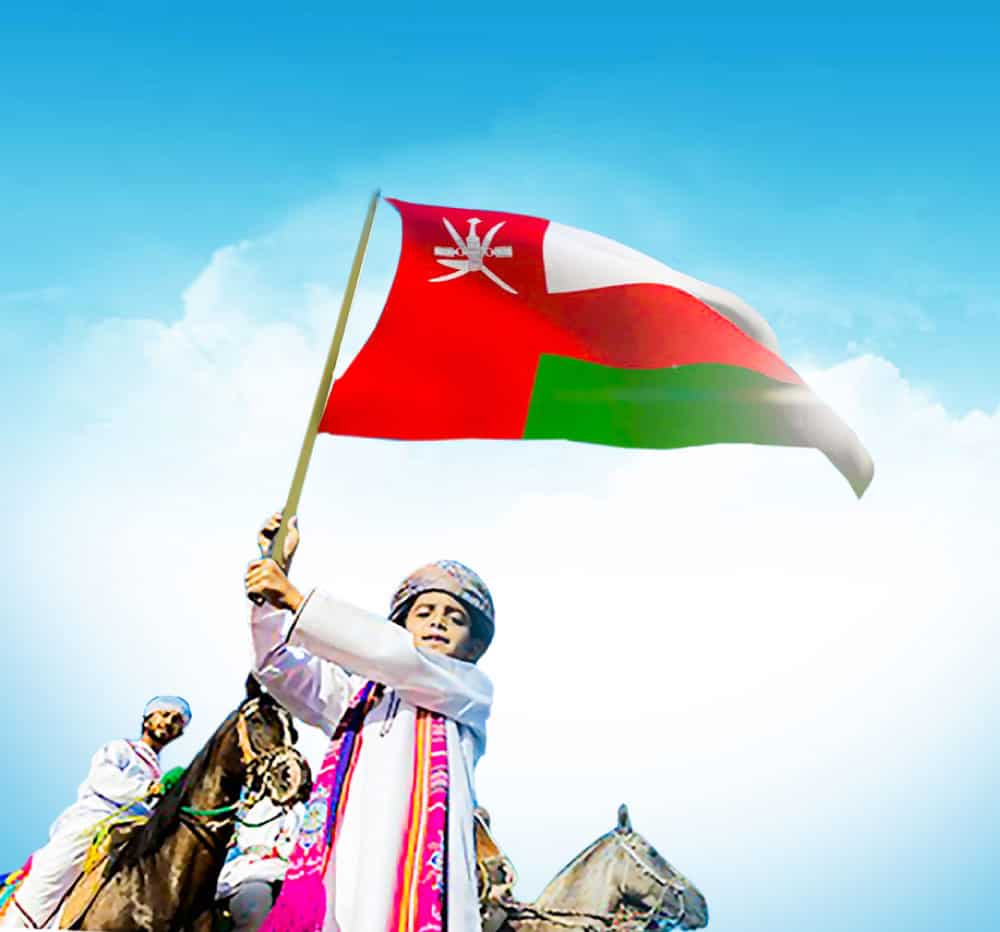
Ramadan
Ramadan is a month of fasting and spiritual reflection for Muslims around the world. In Oman, the month is observed with great reverence and devotion. During Ramadan, Omanis fast from sunrise to sunset and break their fast with a meal called iftar. Dates, tea, and Omani halwa are popular items served during iftar.
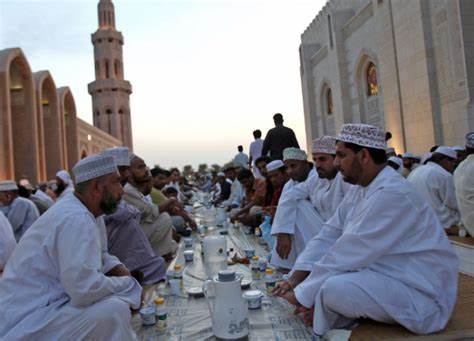
Omani Cuisine
Omani cuisine is a reflection of the country’s rich cultural heritage. The cuisine is a blend of Arabic, Indian, and East African influences. Spices such as cumin, coriander, and turmeric are commonly used in Omani dishes. Fish is a staple food in Oman, and dishes such as grilled kingfish and spiced fish curry are popular. Rice and vegetables are also commonly used in Omani cuisine.
In conclusion, traditional Omani celebrations and festivals provide a glimpse into the country’s rich cultural heritage. From Eid Al Fitr to National Day, these events are an important part of Oman’s social and cultural fabric. Traditional Omani cuisine, with its use of spices, fish, rice, and vegetables, is a reflection of the country’s diverse culinary traditions.
Omani Arts and Crafts
Oman’s rich culture is reflected in its arts and crafts, which have been passed down from generation to generation. Omani artisans are skilled in a variety of crafts, including pottery, weaving, silverwork, and visual arts.
Pottery
Pottery is an important part of Omani culture, with a long history dating back to ancient times. The pottery of Oman is known for its intricate designs and vibrant colors. The clay used to make pottery is sourced from the mountains of Oman, and the pieces are fired in traditional kilns. Pottery is used for a variety of purposes in Oman, including cooking, storage, and decoration.
Weaving
Weaving is another important craft in Oman, with a rich history dating back centuries. Omani weavers use traditional techniques to create intricate patterns and designs. The wool used in weaving is sourced from local sheep, and the dyes used to color the wool are made from natural sources such as plants and minerals. Weaving is used to create a variety of items, including rugs, blankets, and clothing.
Silverwork
Silverwork is a traditional craft in Oman, with a long history dating back to the days of the frankincense trade. Omani silverwork is known for its intricate designs and attention to detail. The silver used in Omani silverwork is often sourced from nearby countries such as Yemen and India. Silverwork is used to create a variety of items, including jewelry, daggers, and household items.
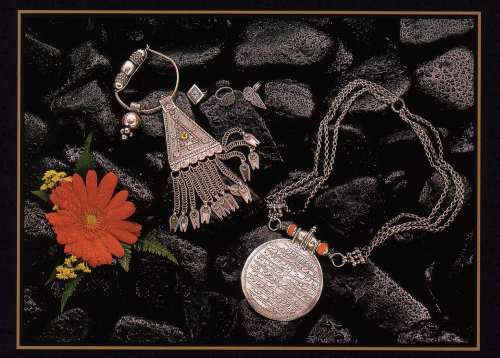
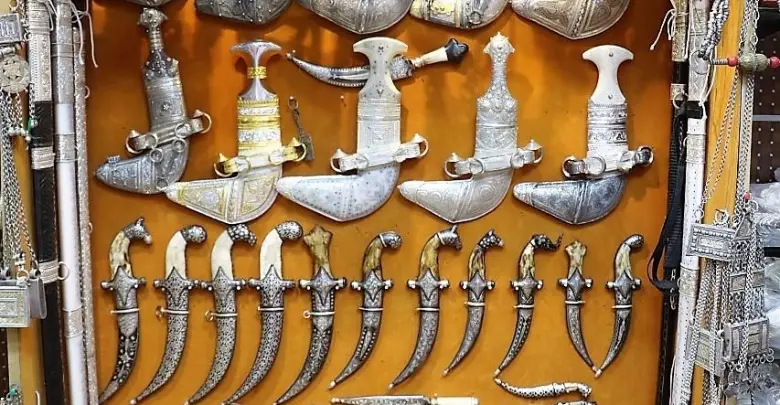
Visual Arts
Visual arts are an important part of Omani culture, with a variety of styles and techniques used by Omani artists. Omani visual arts include painting, calligraphy, and sculpture. Omani artists often draw inspiration from their surroundings, including the natural landscape and traditional Omani architecture. The Omani visual arts scene is vibrant and diverse, with many talented artists producing high-quality work.
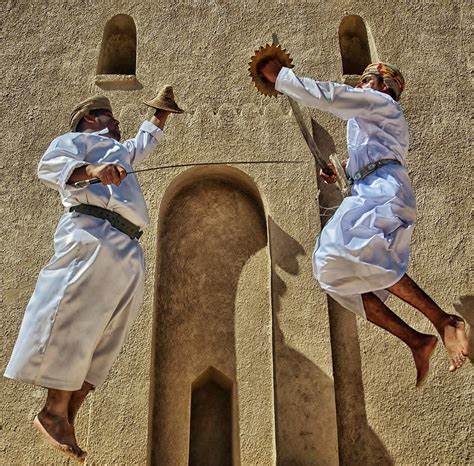
In conclusion, Omani arts and crafts are an important part of the country’s rich cultural heritage. From pottery and weaving to silverwork and visual arts, Omani artisans are skilled in a variety of crafts that have been passed down through generations.
Experiencing Omani Culture
Oman is a country rich in history and culture, and there are many ways to experience it as a visitor. Whether it’s through guided tours, cultural centers, or local interactions, there’s always something to discover.
Guided tours are a great way to see the country and learn about its culture. Visitors can choose from a variety of tours that cater to their interests, such as historical tours, nature tours, and cultural tours. These tours often include visits to museums, historical sites, and cultural centers where visitors can learn about Omani history and traditions.

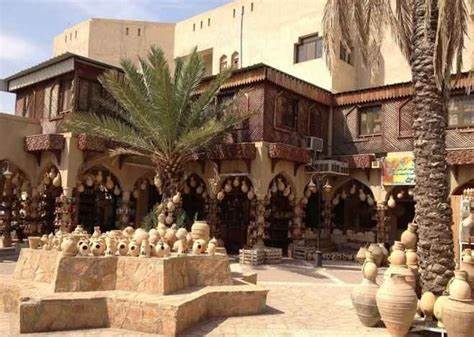
Cultural centers are also a great way to learn about Omani culture. These centers offer exhibitions, workshops, and events that showcase the country’s art, music, and traditions. Visitors can learn about the different regions of Oman and the unique cultures that exist within them.
Local interactions are perhaps the best way to experience Omani culture. Visitors can interact with locals in markets, cafes, and other public spaces, and learn about their customs and traditions. Omanis are known for their hospitality and are often eager to share their culture with visitors.
Muscat, the capital of Oman, is a great place to experience Omani culture. The city is home to many historical sites, museums, and cultural centers, as well as traditional markets and cafes. Visitors can also take a stroll along the Corniche, a scenic waterfront promenade that offers stunning views of the Gulf of Oman.
Ibra, a historic city in the interior of Oman, is another great place to experience Omani culture. The city is known for its traditional architecture and is home to many historic forts and mosques. Visitors can also explore the nearby mountains and valleys, which offer breathtaking scenery.
Oman is a diverse country with influences from the Gulf of Oman, the Persian Gulf, the UAE, Salalah, Baluchi, African, Arabic, English, Swahili, and Urdu cultures. The country is also home to a significant Christian and Hindu population. Visitors can experience the unique blend of cultures through music, food, and art.
The music of Oman is an important part of the country’s culture. Traditional Omani music includes instruments such as the oud, rebab, and tabla, and is often accompanied by poetry. Visitors can attend concerts and performances to experience the music firsthand.
The national flag of Oman is a symbol of the country’s history and culture. The flag features three horizontal stripes of white, red, and green, with a red bar on the left that contains the national emblem, which includes a khanjar dagger.
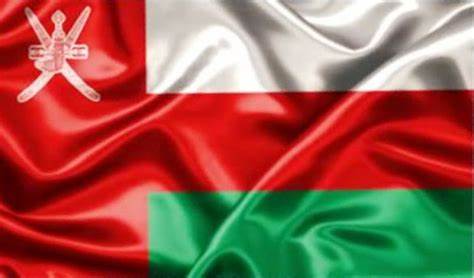
Bedouin culture is also an important part of Omani culture. The Bedouin are nomadic people who have lived in the Arabian Peninsula for centuries. Their traditions and customs have had a significant influence on Omani culture, particularly in the areas of hospitality and courage.
Sultan Qaboos, who ruled Oman for over 40 years, played a significant role in shaping the country’s culture and foreign policy. He was known for his efforts to modernize Oman while preserving its traditions and culture.
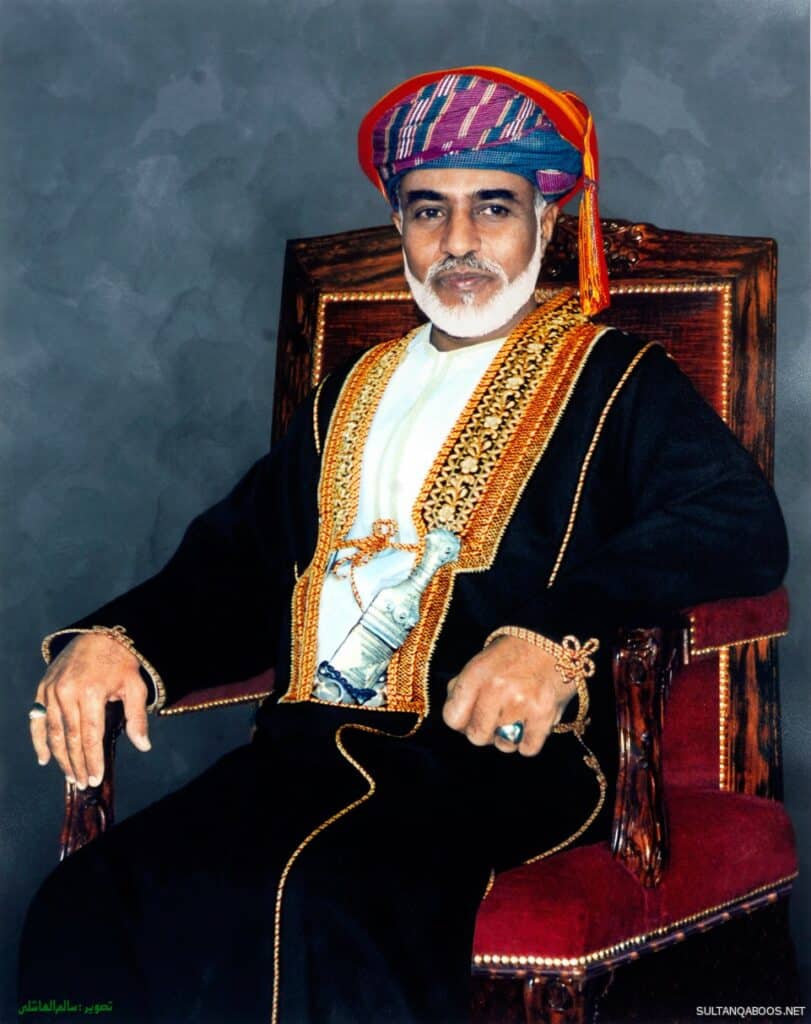
Corruption is not a significant issue in Oman, and the country is known for its relatively low levels of corruption compared to other countries in the region. The government has taken steps to combat corruption and promote transparency in public institutions.
